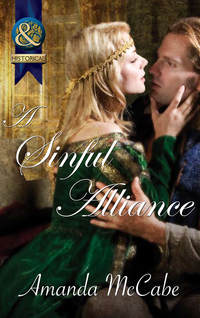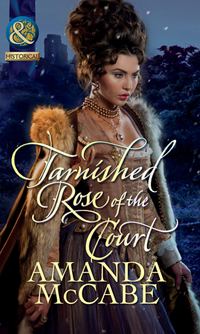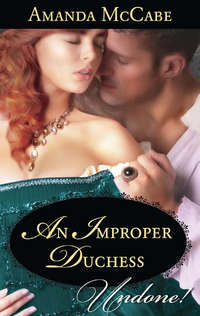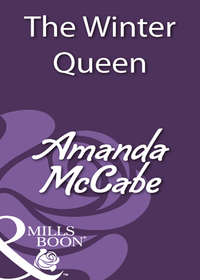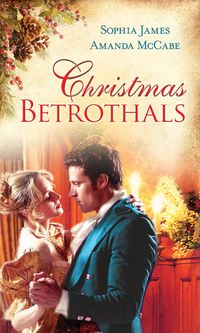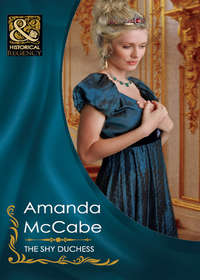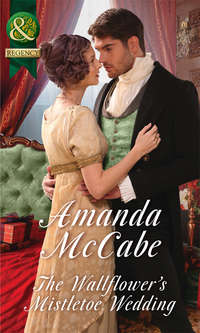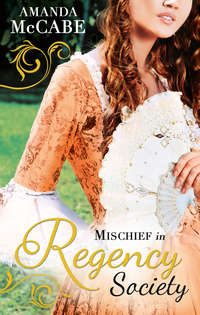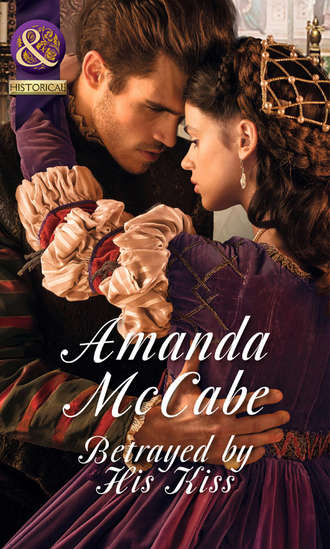
Полная версия
Betrayed by His Kiss
Mena’s lips tightened. She was a country woman, bred of sturdy Tuscan stock, and had lived all her life in this spot. She knew little of Florentine doings, and what she did know she disapproved of. Learning old, pagan ways, looking at paintings of naked goddesses and gods—it went against God and the saints. Even as she loved Isabella, had practically raised her after her mother died, Isabella knew well she did not understand Isabella’s longing for a life that was not her own.
‘Oh, signorina,’ Mena said, strangely sad. ‘Why can you not just...?’
‘Is this my supper?’ a puzzled voice enquired, thin, confused.
Isabella gave Mena one more searching look, but it was obvious that the maid knew no more of their mysterious messenger. She had only lectures about appreciating one’s place in the world, the place where God placed one. Isabella had heard it all before.
She glanced over to see her father standing at the edge of the garden. It was his practice every evening to emerge from his library when it grew too dark to see the pages of his books and wander out the front doors around the house until he found someone to tell him what to do, where to go. It was no use to have servants remind him of the time, or guide him to the supper table—the same table they ate at every night.
Isabella smiled at him gently. His long, white hair stood out in a thick, uneven corona around his round, ruddy face and his beard was too long, his brows wild above faded green-grey eyes. The green-grey eyes Isabella inherited. Despite the warmth of summer, he wore an old, patched velvet robe trimmed with moth-eaten fur.
‘Sì, Father, it is your supper,’ she said, hurrying over to slip her arm through his and lead him to his chair.
‘Vegetables?’ he asked, absently surveying the offerings.
‘And some stewed chicken with cinnamon,’ said Isabella, sitting down next to him. ‘You like cinnamon. Flavia is just finishing with it.’
‘I will go fetch it,’ Mena said and left them to return to the kitchen. The hum of voices resumed in there as Isabella pressed a cup of wine into her father’s hand. How she yearned to ask him about the letter, to discover what was happening with their Florence relations! But she knew full well it would never work to press him. Until her father had some food, some wine, emerged from his dream world of study, he would not even remember what she talked about.
‘How was your day?’ she asked, spooning out a portion of the pottage on to his plate. ‘Did you finish the new essay on the Aeneid?’
‘No, no, not yet. But I am close, I think. Very close. I must write to Fernando in Mantua. He has documents that will be of great use to me in this matter.’
‘Perhaps he would even travel here himself, then you could discuss it in person,’ Isabella said. ‘We have not seen him in many months.’
‘Hmm,’ was all her father said.
Mena returned with the chicken and they ate in silence as the night shadows lengthened and the stars emerged above them. It was a clear, cool evening, the moon a mere silvery sliver on the horizon. Gradually, Isabella felt the tension of the day easing from her shoulders, sliding away on wine and serene silence. When the dessert of rice cooked in honey and almond milk was consumed, the lanterns strung high in the trees were lit and Isabella and her father were left alone. The conversation in the kitchen slowed, until there was only the distant song of the nightingale.
Isabella leaned her chin in her hand and closed her eyes, envisioning the sketch of young Veronica. There was still something not quite right about the line of the cheek, the flow of the hair, something she could not quite decipher...
‘Perhaps I shall invite Fernando to visit,’ her father suddenly said.
Isabella’s eyes flew open. ‘What? Father, I mentioned that above an hour ago!’
Her father just smiled. ‘Ah, Bella, you think I do not listen to you. I do. It simply takes time for me to absorb your words.’
Isabella laughed and reached out to pour more wine into their goblets. ‘That is very good to know, Father. And, yes, it will be a fine thing to have your friend here for a visit. He could help you so much with your studies. I fear you must find it a lonely task, with none to share your interests.’
‘I enjoy the quiet,’ he answered and took a slow sip of his wine. ‘After the great clamour at university so long ago, I found that only peace is conducive to true study. Do you not find it so, Bella, in your own work?’
Isabella frowned, puzzled. She did not know her father even realized she had ‘work’. ‘My art?’
‘Hmm, yes. Oh, but then art is different from history. I deal with men who are dead, events that are dust. Art is—well, it is life. How can you progress here, when there is nothing to inspire you? No one to help you?’
Isabella was utterly astonished. Every evening, winter or summer, rain or star-shine, she and her father supped together here at this table. Yet these were the greatest number of words they had shared in a long while, the most true understanding he had ever shown her. He loved her, she knew that. He just lived so much in his own mind. ‘I am content,’ she said.
‘Content. But not happy.’ Her father slowly shook his head, his wild hair drooping over his wrinkled brow. ‘Bella, I forget how young you are. This is the life I want, the life I have chosen. You deserve the chance to choose, as well. To look beyond our home and perhaps find a new way. A fine husband. A wider world.’ He sighed. ‘You are really so much like your mother.’
‘Father, what has brought this on?’ Isabella asked, bewildered. ‘Are we not content here together? Are you...?’ A horrible thought struck her. ‘Are you ill?’
He laughed. ‘Not at all. Just the aches and pains of age. I merely had a reminder of the outside world today. A reminder long overdue.’ He reached inside his robe and withdrew a small scroll. The blue wax seal was broken.
Ah, yes. The letter from Caterina, the letter that caused such a furore of curiosity in their house. ‘What is that, Father?’
‘A letter from your cousin Caterina Strozzi. She writes to enquire after you.’ He unrolled the scroll, flattening it on the table. ‘She has shown an interest in you before, but, well, with relations such as they were between myself and her father, how useless I was to them after your mother died—I thought it better to leave things alone.’
‘What has changed?’ Isabella asked.
‘Caterina writes that she knows of your great interest in art, an interest that the two of you share. She says she has not been well of late and she would like a companion to help her, to be her friend. Someone she could trust, a kinswoman. She asks if you will come to live with her in Florence. For a time, anyway.’
Live in Florence? Isabella’s stomach seized and fluttered with a sudden, icy rush of joy and fear. She turned away, pressing her hands hard to that ache. Could this be real? It was what she longed for, prayed for! A wider world, a journey to a place of art and beauty and culture, where she would no longer be alone. Her greatest wish, held out to her now, a gleaming jewel she had only to reach out for.
And yet—and yet...
This was her home, all she knew. What if her bright dream tarnished, turned to ashes in the harsh glare of real life? And what if the nightmares she’d had when she was younger came to torment her in the new house? They hadn’t visited her in a long time, but when she was tired or worried, the visions came back. What would she do then?
‘It is entirely up to you, Bella,’ her father said quietly. ‘Florence was poison for me, but it could be good for you. You are so smart, so lovely. But if you do not wish to go, that is very well, too.’
‘Who would take care of you, Father?’ she whispered, still surrounded by that buzzing brilliance of unreality.
‘Why, the servants, of course! You could take Mena with you, but the rest of us will rub along well enough. My needs are few. And I will invite some of those friends to visit. It is past time I did that anyway.’ He reached out suddenly and took her hand, his fingers gnarled, ink-stained, gentle. ‘I cannot stand in your way any longer, Bella. You must find your own path now.’
Isabella curled her hand around his tightly. ‘Is my path in Florence?’
He nodded. ‘I think it may be.’
She drew in a deep, steadying breath. All her trepidation, her wild fears, unspooled like a skein of wool and floated free. This was right. This was her destiny, what she waited for all her nineteen years. She laughed aloud, her heart alight with all the shimmering possibilities of the future.
‘Very well, then!’ she cried. ‘I will go to Florence.’
* * *
‘There is the sea and who will drain it dry? Precious as silver, inexhaustible, ever-new, it breeds the more we reap it—tides on tides of crimson dye our robes blood-red...’
Orlando Landucci stared out of the window into the Florence dusk, barely hearing the soft voice of Lucretia, his former mistress and now his friend, as she read from the Oresteia. Evening was gathering fast, always the most beautiful time in the city. A moment when the stone towers turned to spun gold in the torchlight, when ordinary faces turned mysterious and beautiful. All the filth and ugliness were hidden away in the darkness. And so were wicked deeds.
He could hide, too, could forget, even if it was only for few hours. He loved the night.
But tonight the veil was very thin and he couldn’t lose himself in the illicit pleasures of Florence as he usually did. Trouble was bubbling just below Florence’s serene, elegant surface. A tension that simmered and crackled, soon to snap and release the winged evils of Pandora’s box into the world. None of them could deceive themselves much longer. Not even the great Medici and their allies.
Soon Orlando would also have his chance. He wouldn’t have to hide in the night any longer.
As the twilight slipped into black darkness, the fine cobblestone square below Lucretia’s window transformed. Respectable families retreated behind the stout walls of their palazzi, closing their shutters. Merchants shut their shops in the mercato and beggars took refuge in church doorways.
Yet Florence was far from forsaken. Soon the calles would fill with new crowds, young men in brightly striped hose and pearl-sewn doublets, plumed velvet caps on their curled hair. They sang bawdy songs as they passed wine flasks between them, waiting for the courtesans in their crimson-and-yellow satins to emerge from their houses. Music could be heard in the distance, flutes and tambours, a merry dance that grew louder and louder as the night became darker.
Suddenly, as he watched lazily, a large group tumbled into the square, led by the musicians. At their head was the greatest rogue in all Florence, Giuliano de Medici, the handsome younger brother of the all-powerful Lorenzo, followed by his ever-present friends.
They had obviously started on the strong wine a long time before, for they stumbled on the paving stones, laughing uproariously as one of them tumbled to his knees. Their voices, raised in out-of-tune song, floated up to Orlando’s window. They spun and flowed in a stained-glass kaleidoscope of bright greens, blues, reds, waving plumes and flashing jewels. Like a painting come to life.
Orlando eased the window open an inch, letting in the music and laughter, borne on a cool, perfume-scented breeze that seemed to spread their merriment to every corner of the city. There was no danger yet to their merriment, no sadness, no dread. Only their youthful, privileged certainty that all would be well for them, that beauty and merriment would always prevail.
Orlando had once been just like them. So sure nothing could touch the brightness of his life. Now he knew how very false that was. How delicate, like a puff of dust blown away by a hot summer wind. They soon would know that, too.
He saw Eleanora Melozzi hung on Giuliano’s velvet-clad arm, the most expensive courtesan in all Florence. The torchlight glowed on the loose fall of her golden hair as she turned to laugh with the couple who tripped behind them.
The red-haired woman who was Eleanora’s friend held on to a tall, fair-haired man’s arm, her jewelled hand curled tight and possessive around his velvet sleeve. He threw back his head in a burst of raucous laughter, a ray of flickering light falling over his face.
It was Matteo Strozzi.
Orlando’s fist tightened on the edge of the window until the glass bit into his skin. He felt it not at all. He could only see Strozzi, the vile bastard. The man he had vowed to destroy.
Suddenly, through his crimson haze of anger, he felt a soft touch on his sleeve, drawing his hand down. Startled out of his anger, he looked down to see that Lucretia had left her book and come to his side. She stared up at him, her green-gold eyes wide with concern.
He flashed a quick grin, trying to reassure her. He didn’t want anyone to know the secret fury that burned inside of him. Lucretia had been his first mistress when he was a wild youth and now that she was retired she was his friend. Her palazzo was a place where he could go for gentle quiet and for someone to talk to, share his love of books and art. Lucretia knew him too well to be put off by a careless smile, a teasing word, as everyone else was. Florence was city of facades and Orlando was a master of them.
‘You are very distracted this evening, Orlando caro,’ she said. ‘What is amiss?’
He knew he couldn’t fool Lucretia, but neither could he confide in her tonight. The wild darkness was wrapping around him, seizing hold of him, and soon he would be lost to it. Only rougher pleasures could drown it tonight.
He laughed and wrapped his arm around Lucretia’s waist, drawing her closer until her jasmine scent drowned out the night breeze. ‘What could be amiss on a night such as this, my fair Lucretia? The stars are like diamonds, sprinkled in your beautiful hair...’
‘You are a terrible poet.’ Lucretia laughed, but her gaze slid to the street below, where the merry Medici retinue was retreating from the square. ‘Were you thinking of them?’
‘Why would I do that? Everyone else thinks of them. At least one thought in this city must be for something else.’
Lucretia frowned. ‘My friend Jacopo Pazzi says...’
‘Something he has no business saying in front of you, I am sure,’ Orlando said. He didn’t want to think of Matteo Strozzi or his friends the Medicis, not now. The old wildness was coming over him again. He, too, knew some of the Pazzi family, the great, wealthy rivals of the Medici, and he knew how indiscreet they could be when the wine flowed. It was very dangerous. ‘Men’s discontent grows when they are in their cups, as you know better than anyone, my Lucretia.’
She still stared down at the square, where the Medici—and Matteo Strozzi—had been. They seemed to leave a shadow behind them. But she said nothing more about them. ‘I do wish you would come with me to Bianca’s tonight. She has a new pet poet, they say he is very amusing. It could distract you.’
‘I fear not, bella Lucretia. I’ve already agreed to another engagement with some friends.’
Lucretia laughed. ‘An engagement at a disreputable tavern outside the city walls? Are we too refined for you now, Orlando?’
A tavern was exactly where he was going, but he wouldn’t admit that to Lucretia, who had once been the most educated, most witty courtesan in all the city. He loved the cultured life she created around herself and her friends. But some nights, when the dark demons were creeping up on him, grabbing at him with their cold, skeletal fingers, only rougher pleasures could distract him. Cheap wine, pretty women, rude music.
‘Oh, Orlando,’ she said with a laugh. ‘One day you will find whatever it is you seek and it will make you want to be a better man. You are like a questing knight.’
‘Me?’ he scoffed, laughing. ‘A questing knight? I search for a fresh barrel of ale, mayhap, but a rare jewel? You have become a romantic in your retirement, I fear.’
She shook her head. ‘I know you. One day you will see, I promise you that. And your life will change.’
‘I will see you next week, Lucretia,’ he said. He took her bejewelled hand and raised it to his lips.
She gently touched his cheek. A sad little smile touched her lips. ‘I do hope so. I worry about you, Orlando, when you get that look in your eyes.’
‘No need to worry about me, bella,’ he said, trying to give a careless laugh.
But it was obvious Lucretia was not fooled. She stepped back and waved him away. ‘Go, then, if you must! You young men and your taverns...’
Orlando kissed her once more, and strode out of her elegant palazzo and into the increasingly crowded streets. He slipped on a black half-mask and made sure his daggers were strapped at his belt. The crowds grew thicker, louder, the farther he went into the city’s centre. The houses were taller, packed closer together until the stucco walls nearly touched above his head. The window shutters were thrown open to the night, women in loose camicie and bright gowns leaning out to call down to passers-by. The smell of cheap ale and rose water hung in the warm air. Only in a place such as this could Orlando forget what had happened to Maria Lorenza. Only there could he be free.
Yet that freedom never lasted long. The demons always caught up with him in the end.
Chapter Two
‘Pesce, pesce! The finest, freshest fish in all of Florence, madonna, you will not be sorry.’
Isabella laughed at the fishmonger’s solicitations, waving him away as she guided her horse around the edges of the mercato. He shrugged and turned to the next passer-by and soon the acrid scent of fish rotting in the sun faded behind her, giving way to the sweetness of ripe fruit, the spiciness of cinnamon-coated nuts.
How odd, she mused, to find something so prosaic as fish in such a dreamland.
Ever since they’d entered through one of Florence’s twelve gates, the Gate of Fortune, and headed towards the Strozzi palazzo, Isabella felt caught up in a swirling fantasy, a land she could not have summoned up even on a canvas. Descriptions in books, and from her father’s friends, could never fully conjure such a place.
It was slow going on their horses; Isabella was trailed by Mena and two footmen, plus mules for their baggage. It gave her time to stare, to inhale deeply of the scents and sights, to absorb all of it into herself. She had to remember all of this, all the faces and facades, so she could commit it to her sketchbook. Then one day, when she was an old woman buried again in the country, she could gaze at the faded drawings and remember the day she came fully to life.
Florence was a city of twisting streets, some of them so narrow she and her party were forced to move in single file, their horses’ hooves clacking on the uneven flagstones. There were open squares, tall towers, fortresslike palazzi with massive, unbreachable stone walls, overhanging balconies where beautifully dressed ladies lounged and laughed on this sunny day, their hair spread out to catch the golden rays.
The old churches, silent and dignified in their ancient sanctity, presented facades of geometrical patterns of faded marble in black, white, green, pink. Behind them were high, crowded buildings where the workers and artisans lived, bursting with shouts, cries, shrieks of laughter. Behind them were convents and abbeys, barred, secure, mysterious.
The sheer life of the place was overwhelming. Isabella was used to her Tuscan home, a place where olive trees outnumbered people, where quiet contemplation reigned. Here, a rich cacophony blended and echoed all around. The patter of merchants selling fabric, vegetables, candles, feathers, perfumes. The pleas of beggars, the screams of children chasing down the calles, the barking of stray dogs, and snorts of pigs as they were led to market. It was crowded, hot, the air close with the smells of cooking meat, spilled wine, pungent perfumes, unwashed skin, sweet flowers in hidden courtyards.
Isabella loved it. She adored every reeking, noisy fragment of it all. Her heart lifted in her breast, rising up on those first tentative wings of freedom she had thought never to find. Life had been waiting here all along, in these narrow streets of Florence.
Isabella twisted her head around to study a church tower laid out in an intricate pattern of coloured marbles, all green and pink and bright white in the sun. She wished she had her sketchbook with her, so she could capture the lines and shapes of it all. It held her spellbound for a long moment.
She heard a shout somewhere ahead of her and spun back around, startled. Mena and the others had vanished and all around her was the press of strangers. People jostling together, roughly dressed, loudly laughing.
She felt a sudden cold stab of panic. At home she wandered alone everywhere, but those were fields and vineyards, her own gardens. This place that had seemed so beautiful and enticing only a moment ago suddenly seemed frightening, strange, an alien world, and she had no idea how to make her way in it.
She steered her horse down a narrower, quieter street. She tried to remember Caterina’s letter, which was tucked up now in one of the footmen’s saddlebags, the location of her cousins’ palazzo, but suddenly all the lovely buildings that held her so captivated seemed so very alike. The children who dashed past, the women who peered out from behind latticed windows, seemed as if they watched her with suspicions.
Confused and growing a little frightened, Isabella turned another corner and found herself in a small courtyard, tall houses leanings in on all sides, casting a shadow on the cracked cobblestones under her horse’s hooves. These buildings were certainly not as fine as the ones that lined the river. The plasterwork was flaking, the windows free of fine glass and velvet curtains, and the fountain at its centre was broken and silent. Surely this was far from where Caterina lived.
She tugged on the reins to turn the horse. But the entrance to the courtyard was blocked by two men she hadn’t noticed before and it angered her that she had let her guard down. They were both tall, brawny in their rough russet doublets, their bearded faces shadowed. One of them grinned at her, a horrible flash of yellowed, broken teeth behind his black beard.
‘Look what pretty little bird just landed here,’ the smiler said. His companion just grunted, which seemed even more fearsome.
‘Scusi, signor,’ Isabella murmured, keeping her head high even though she was shivering. She tightened her grip on the reins and tried to slide past them in the narrow passageway.
It all happened in an instant. One of the men reached up and grabbed her horse’s bridle and the other seized her arm in a bruising grip. He dragged her towards him and a sharp bolt of pain shot all down her side. She screamed and tried to kick out at him, but her skirts wrapped around her legs. She managed to catch his cheek with her nails and he cursed and drew back his fist.
Just as suddenly as she was attacked, the man who held on to her was wrenched away and she stumbled over the uneven cobblestones. Her hat tumbled from its anchoring pins and blinded her for a moment. She felt dizzy, nauseated, as the sound of shouts and a loud, bruising thud hit her ears.
Isabella tossed her hat aside and shook back the tangle of her loosened hair. The scene that flashed in front of her was like something in a painting, a judgement fresco in a church, a violent swirl of movement and blurred faces against a swirl of colour. She instinctively scrambled out of the way and pressed herself tight to a stucco wall as she tried to make sense of what was happening right before her horrified eyes.
One of her would-be attackers lay still on the cobbles, a dark stain spreading beneath him. The other man was locked in combat with a tall figure all in black, like some avenging spirit. He moved with a terrible grace, as if mortal combat was nothing to him at all, his fists and booted feet like lethal weapons that looked so elegant and moved with sudden, sharp force.


